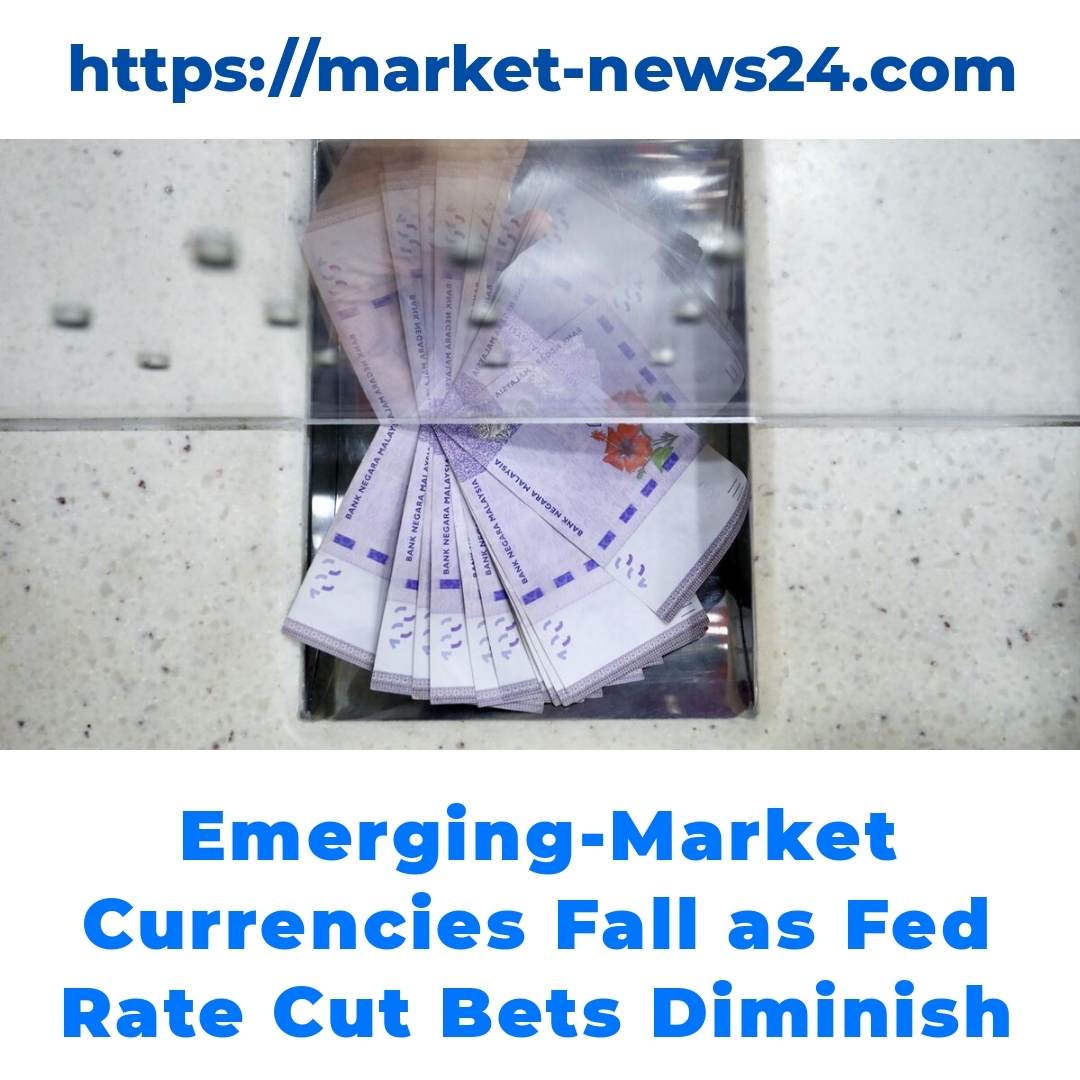The financial landscape is increasingly shaped by the slow but steady decline of emerging-market currencies. With five consecutive sessions of downturn, these currencies are being heavily influenced by traders’ bets, especially in light of Federal Reserve signals regarding potential interest-rate cuts. Understanding this dynamic is crucial for grasping the broader implications for global markets.

Understanding the Factors Behind the Decline
Recent trends in emerging-market currencies show a clear pattern: there’s been a noticeable decline over the past sessions. If you look at the statistics, you’ll find that many emerging currencies have lost value against the US dollar. For example, the South African rand and Brazilian real have both seen significant drops. These trends can be attributed to multiple factors, but one of the leading influences is the shifting stance of the Federal Reserve.
When it comes to the Federal Reserve, their policies play a critical role in shaping market dynamics. Interest-rate cuts, for instance, have historical significance. Whenever the Fed hints at lowering interest rates, it creates ripples not just in the US economy, but globally. Traders start adjusting their bets based on economic indicators, which directly impacts emerging-market currencies. As the US dollar strengthens due to these anticipated changes, emerging-market currencies often weaken in response.
The Resilient US Economy and Its Influence
Now, let’s dive into the current state of the US economy. It’s important to note that the US economy exhibits a remarkable resilience. Key indicators like job growth and consumer spending continue to show positive signs. This economic stability plays a significant role in how emerging-market currencies are performing.
When the US economy thrives, it doesn’t just affect Americans; it sends shockwaves around the world. A strong US economy often leads to a decline in emerging-market currencies. Investors tend to flock to the US dollar, seeking the safety and stability it offers, which leaves emerging-market currencies vulnerable and can lead to depreciation.
Traders’ Bets and Market Trends
Understanding traders’ sentiments is crucial when discussing market trends. Recently, traders have shown a cautious outlook regarding potential interest-rate cuts by the Federal Reserve. Many are grappling with mixed signals coming from economic data, leading to uncertainty about future cuts.
This uncertainty creates a ripple effect in currency trading. The psychological factor of how perceptions of the Federal Reserve shape market behavior cannot be understated. For instance, if traders believe the Fed will maintain or raise rates, they may pull back from emerging-market investments, further contributing to a decline in these currencies.
Implications for Emerging-Market Currencies
The long-term effects of Federal Reserve policies on emerging-market currencies could be profound. If we consider hypothetical scenarios, one can envision a situation where continued interest-rate cuts could further weaken these currencies.
Let’s break down some key contributing factors to the decline in emerging-market currencies. These can include:
– Slow economic growth in key emerging markets.
– Political instability in certain regions.
– Changes in global commodity prices.
Each of these factors plays a part in shaping the performance of these currencies, making it essential for traders and investors to keep a close eye on both domestic and international developments.
Conclusion
In summary, we’ve explored the decline of emerging-market currencies and how it interlinks with the US economic landscape. The relationship between the resilient US economy and emerging-market currency performance highlights the interconnectedness of these markets.
As we look toward the future, it’s vital for traders to adopt a cautious approach, especially given the dynamic nature of Federal Reserve policies and their potential impact. Emerging-market currencies will continue to be influenced by various external factors, and staying informed will be key to navigating these changing tides.
What factors are contributing to the decline in emerging-market currencies?
Emerging-market currencies are declining due to several reasons, including:
- Slow economic growth in key emerging markets.
- Political instability in certain regions.
- Changes in global commodity prices.
How does the Federal Reserve influence emerging-market currencies?
The Federal Reserve’s policies are significant because:
- Interest-rate cuts can strengthen the US dollar, causing emerging-market currencies to weaken.
- Traders adjust their investments based on the Fed’s signals, affecting currency performance globally.
Why does a strong US economy lead to a decline in emerging-market currencies?
A resilient US economy often leads to:
- Increased investment in the US dollar, which is seen as safer.
- Emerging-market currencies becoming less attractive to investors.
What is the role of traders’ sentiments in currency trends?
Traders’ outlook is crucial because:
- Cautious sentiments about potential interest-rate cuts can create uncertainty in the market.
- If traders think rates will stay the same or increase, they may avoid investing in emerging markets.
What are the long-term implications for emerging-market currencies?
Long-term impacts could include:
- Continuous weaknesses if interest rates are cut further by the Fed.
- Greater vulnerability due to ongoing external factors.
How should traders approach investing in emerging-market currencies?
Traders should:
- Adopt a cautious approach to investment.
- Stay informed about both domestic and international developments that could influence currency performance.





